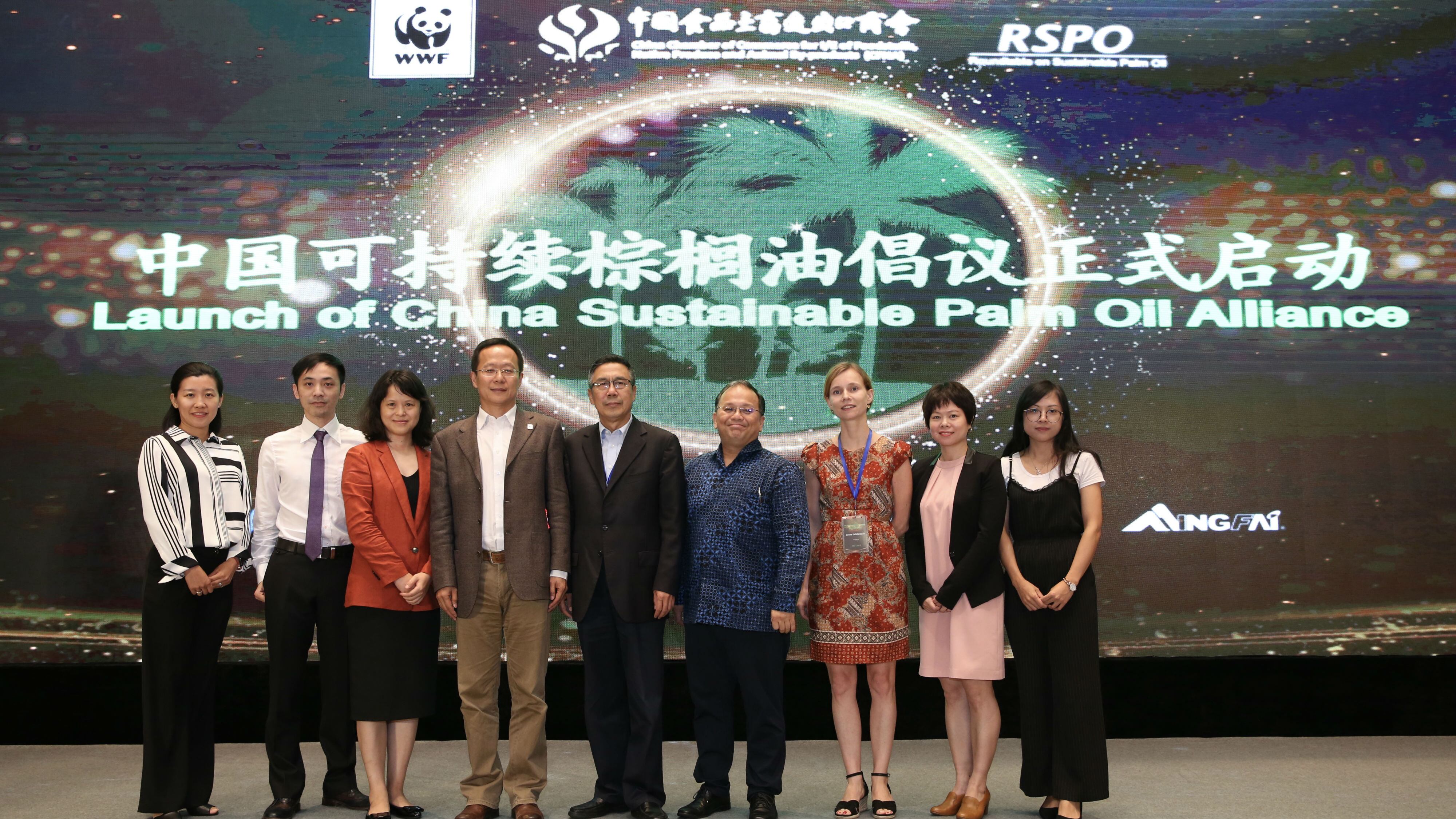At present only 1% of the palm oil imported into the country is classified as sustainable by the Roundtable for Sustainable Palm Oil (RSPO).
Therefore, The China Sustainable Palm Oil Alliance has been launched by the China Chamber of Commerce of Foodstuffs and Native Produce (CFNA), RSPO, and the World Wildlife Fund (WWF).
Some of the key companies in the palm oil supply chain that made the commitment to take action on promoting the adoption of sustainable palm oil in the Chinese market include Mars Wrigley Confectionery, L'Oréal China, AarhusKarlshamn, Cargill China, China National Cereals, Oils and Foodstuffs Corporation, China Grain Reserves Corporation, HSBC, Yihai Karry and SGS China, among others.
"The unsustainable cultivation of palm oil will bring a series of environmental and deforestation problems to the producing countries. By launching the Alliance today, we are calling for all stakeholders in the palm oil value chain to join our new platform and make pro-active commitments and take action to accelerate the pace of transforming markets to make sustainable palm oil the norm,” said Zhou Fei, head of WWF's wildlife trade programme.
WWF is working to ensure that RSPO standards are based on socially acceptable and environment-friendly criteria, including no conversion of natural ecosystems such as rainforest, and is working to increase demand for, and use of, goods produced under such practices. In China, WWF works closely with RSPO to facilitate industry engagement and consumer promotion to drive market transformation towards sustainability.
Commitment from key players
“Its (the China Sustainable Palm Oil Alliance) inauguration demonstrates how essential China has become to the sustainability of the palm oil industry as one of the world’s biggest importers of palm oil,” Yun Jiang, RSPO China representative, revealed to FoodNavigator-Asia.
“The China Sustainable Palm Oil Alliance has made commitments that will be pivotal in making sustainable palm oil the norm in the future.
“These span everything from supply chain traceability and transparency; elimination of controversial and illegal sources; zero deforestation of High Conservation Value (HCV) and High Carbon Stock (HCS) areas; increase in uptake of socially acceptable and environment-friendly palm oil certified to the RSPO standard; and better management practices.”
Food companies, being among the key players in the palm oil industry, play a very important role.
“We welcome Chinese food manufacturers to join hands with the RSPO to realise a sustainable industry,” said Yun.
The RSPO has proactively communicated with the “biggest players in the market” and encouraged all stakeholders to take the initiative and “make a change”.
Other action items
Yun said that some of the “key vehicles” for achieving the Alliance’s goals include activities such as dialogue sessions aimed at sharing experiences and best practices; celebrating and showcasing success and momentum, and engaging the public through active communications; working groups designed to tackle challenges and to develop common solutions; and policy advocacy through the development of proposals.
Yun added that members of the China Sustainable Palm Oil Alliance have to report on their progress according to the requirements, annually.
Positive momentum
China is the second-largest importer and third-largest consumer of palm oil yet only around 1% of palm oil imports is RSPO-certified sustainable palm oil.
Nonetheless, so far, the RSPO is seeing very positive momentum towards its vision for China, which has seen Chinese membership having surged in the past few years. The RSPO has established a target for the Chinese market that by 2020, 10% of the country’s imported palm oil will be RSPO-certified.
The RSPO is a not-for-profit organisation that unites stakeholders from various sectors of the palm oil industry to develop and implement global standards for sustainable palm oil.
It first started working with CFNA in 2013 through an MOU which committed both organisations to greater cooperation in a number of areas, including promotional activities, dialogue and exchange visits, information sharing, and policy recommendations. Since then, CFNA has become a strategic partner for RSPO in China to engage and influence policy makers, dominant players in the palm oil sector, industry platforms and other relevant stakeholders.

